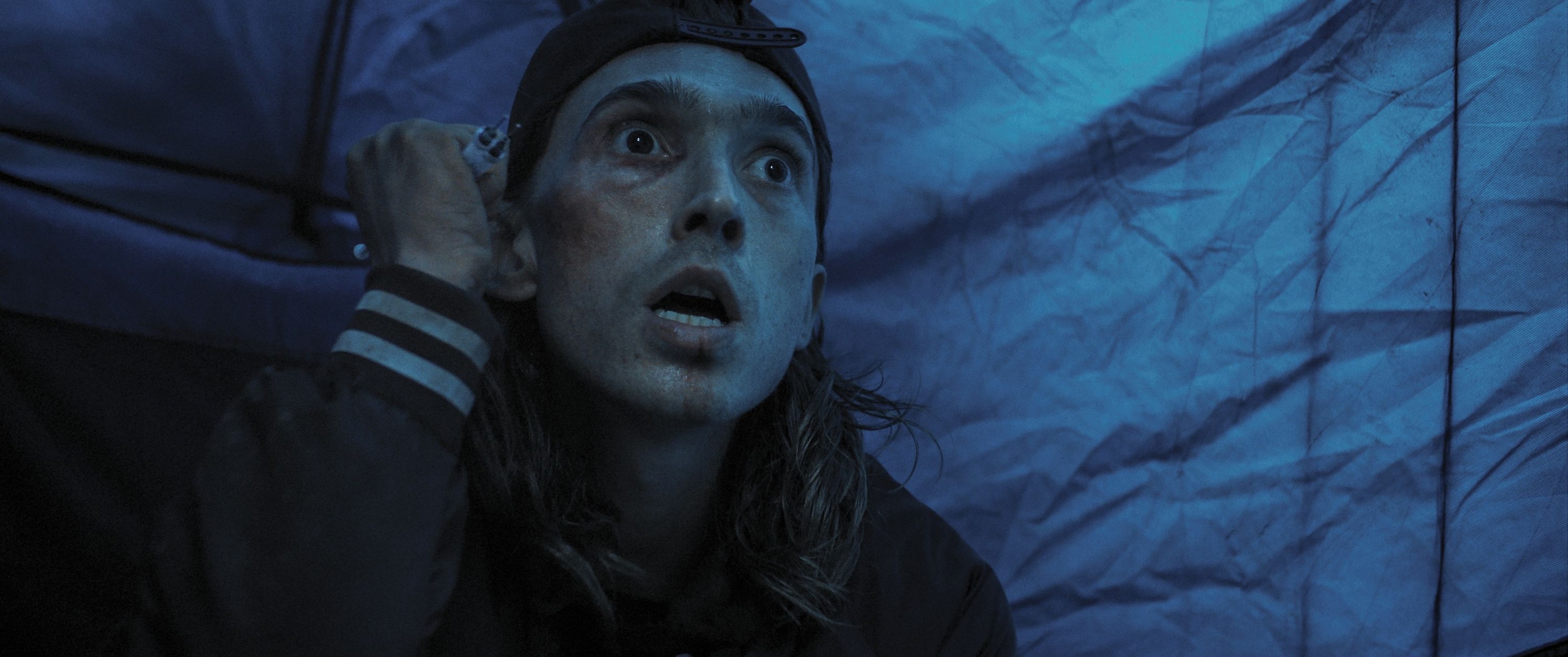Russian-Canadian director Trofimova has created a raw work of observational cinema that plunges the audience into a very specific, very narrow reality.Anastasia Trofimova/Route504/Supplied
Russians at War
Directed by Anastasia Trofimova
Written by Roland Schlimme
Classification N/A; 129 minutes
Available for digital rental at russiansatwar.com starting Aug. 15
Critic’s Pick
“Who needs this war?”
It is a question that could be asked – should be asked – every day, every minute of this current and cursed era. And yet it is also a question that went largely unheard when asked toward the end of the gripping and essential new Canadian documentary, Russians at War.
Just a few days before Russian-Canadian director Anastasia Trofimova’s film was set to make its North American premiere at the Toronto International Film Festival last fall, the production was denounced as pro-Kremlin propaganda. The denunciations were loud and impassioned, even if the film’s most prominent critics – including then deputy prime minister Chrystia Freeland – had not actually watched the film. If they had, they would have witnessed an elderly Russian mother utter the aforementioned “Who needs this war?” question, which is posed late in the doc as she buries her son. The young man’s body has been returned home after a short stint on the front lines of an unjust invasion that, as Trofimova discovers, is viewed with as much confusion and despair by everyday Russians as it is by the rest of the world.
For a film that is said to whitewash the crimes of Vladimir Putin’s war of aggression, the doc sure is a lousy bit of Moscow-friendly propaganda. A fly-on-the-wall account of the anxieties and horrors that Russian soldiers face as they’re shipped to the frontlines of a battle that they either don’t understand or believe in, Trofimova’s film carries a decidedly simple message: war is hell, and its victims are many.
The doc opens in 2022, with Trofimova filming a chance encounter in Moscow with a Ukrainian man named Ilya, who happens to be eagerly fighting on the Russian side. Curious about how someone can hold such contradictory geopolitical attitudes within himself – and knowing a compelling story when she sees one – Trofimova accepts Ilya’s invitation to film him and his battalion on the front, a dangerous privilege extended to few. What follows is a harrowing tour through the side of the war that Putin would surely prefer to be buried.
The 10 best films of 2024, and how to watch them
Opinion: Any doubt in the West about the war in Ukraine is a win for the Kremlin – even if it’s through film
The troops are disaffected at best, furious at worst, having been torn from their families to put their lives on the line. Some are clearly operating under the overwhelming influence of Moscow’s disinformation machine, convinced they are fighting Nazis. But many are there because they have no other socio-economical choice. And as one by one they are felled in combat – Trofimova capturing it all on camera without a crew or much in the way of personal protection – it becomes absurdly clear that there is no glory here, only agony.
With Lewis Milestone’s 1930 adaptation of All Quiet on the Western Front clearly a guiding light, Trofimova has created an explicitly anti-war, anti-Moscow film that should ensure she’ll never set foot inside the country of her birth so long as Putin is in power. Is it so radical to suggest that not every single Russian of fighting age is a monster, but a human being merely hoping to escape the machinations of their state?
This is not to say that the film is above reproach. Legitimate criticism can be levelled at Trofimova’s disinterest in including any Ukrainian perspectives in the film, people whose country and lives have been devastated by the whims of the power-mad Putin. Yet documentary cinema does not need to abide by the rules of a news-magazine style report where all sides are equally represented.
Like Tim Hetherington and Sebastian Junger’s lauded 2010 doc Restrepo, following U.S. soldiers in Afghanistan, or Deborah Scranton’s landmark 2006 doc The War Tapes, which largely consisted of footage shot by National Guard soldiers while deployed in Iraq, Trofimova’s film is a raw work of observational cinema meant to plunge the audience into a very specific, very narrow reality.
The same defence can be mounted as to why we never see Trofimova push back against some of the Russian soldiers’ more ludicrous claims, such as their insistence that no one on their side could possibly be committing war crimes. By the nature of the film that she has made – one free of editorial narration, and whose production was dependent on the security provided by her own subjects – she simply lets the camera roll, and reality spew forth. Should the director be castigated for following a story, or congratulated for walking away when it becomes too complex to process in black-and-white binaries?
That’s a question that the film’s detractors might likely ask, should they decide to put aside their protests and press play. Last fall, TIFF was forced to postpone the film’s festival screenings over security concerns, presenting the film two days after the fest officially concluded.
Almost a year later – a period during which the film was pulled from other film festivals completely, and had its support rescinded from partial financier TVO – Russians at War is now being made available directly to audiences via a website that producers have set up. Trofimova has done her part. Now, the rest of the world can decide.













